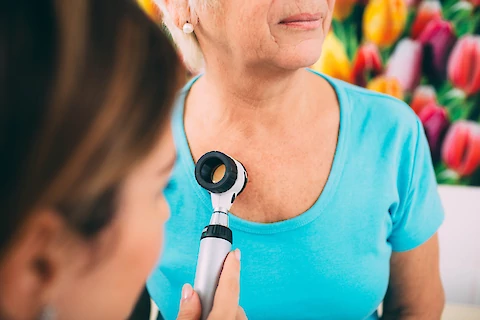
Skin cancer screenings are an important aspect of maintaining good health, especially for seniors. As we age, our skin becomes more susceptible to the harmful effects of the sun and other environmental factors, making us more vulnerable to skin cancer. If seniors never had skin cancer screenings before, they might feel nervous about what to expect during the process.
In this blog post, courtesy of Senior Helpers Westchester County, we will provide an in-depth description of what happens during a skin cancer screening. We aim to put seniors' minds at ease and encourage them to prioritize this crucial health check.
What is Skin Cancer Screening?
Skin cancer screenings are a preventative measure that helps detect any abnormalities or early signs of skin cancer. The main purpose of these screenings is to catch any issues early on. This, in turn, increases the chances of successful treatment and prevention of future complications.
Preparing for Skin Cancer Screening
Seniors will want to schedule an appointment with a dermatologist or primary care physician in their area. It's essential to gather their medical history and a list of any medications they are currently taking, as this information may be relevant during the exam. On the day of their appointment, ensure that they have removed all makeup, nail polish, and jewelry, as these can interfere with the examination.
What to Expect During the Screening
Upon arrival, a healthcare provider will explain the screening process and answer any questions seniors may have. The main part of skin cancer screenings for seniors involves a visual examination of their skin. The healthcare provider will inspect seniors' entire body, including less visible areas such as between their toes and behind their ears. A dermatoscope, a specialized magnifying tool, may be used for a closer look at any suspicious spots on their skin.
If the healthcare provider notices any concerning findings, they will discuss these during the appointment. They may recommend a biopsy or other further testing to determine the nature of the suspicious spot. The healthcare provider may suggest follow-up appointments or preventative measures to help protect seniors' skin and reduce their risk of skin cancer.
After the Screening
Once the screening is complete, the healthcare provider will go over the results and any necessary follow-up care. If the findings were normal, the healthcare provider would advise when seniors should schedule their next screening. If there were any abnormal findings, the healthcare provider would explain the next steps. This can include further testing or treatment options.
Between screenings, seniors should perform regular self-examinations of their skin to keep an eye out for any changes. Make sure to practice sun protection and skin cancer prevention habits, such as wearing sunscreen and protective clothing when outdoors.
Get Assistance and Support From Senior Helpers
Prioritizing skin cancer screenings is a vital part of maintaining good health for seniors. By understanding what to expect during the screening process and being proactive about skin health, seniors can reduce their risk of developing skin cancer and catch any issues early on.
If you live in Scarsdale, Port Chester, Mount Kisco, Westchester County, or White Plains and need assistance with senior care and support, contact Senior Helpers Westchester County.